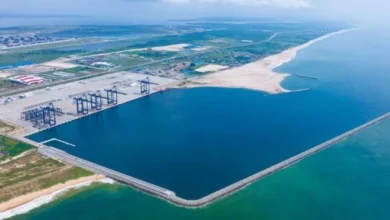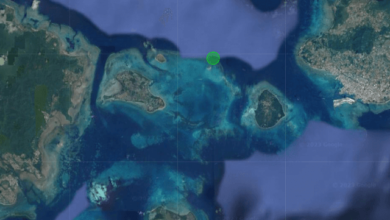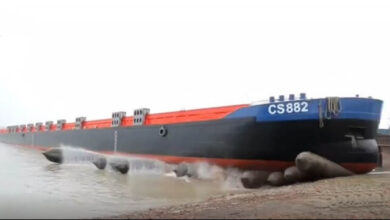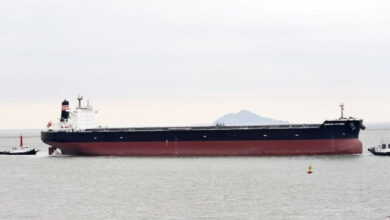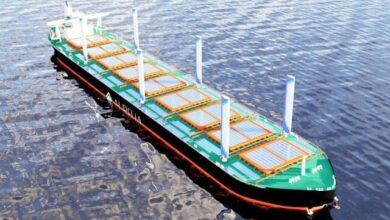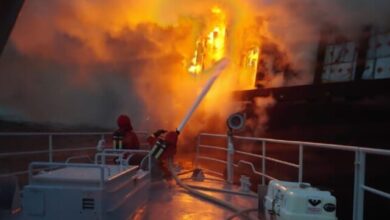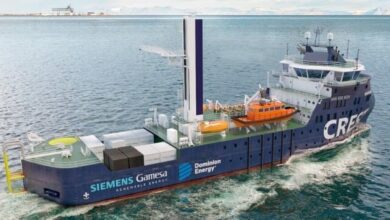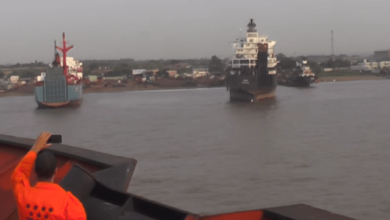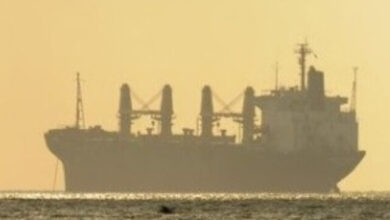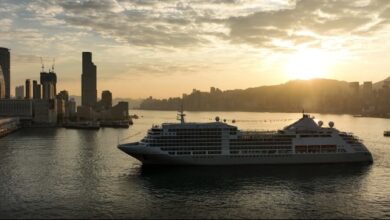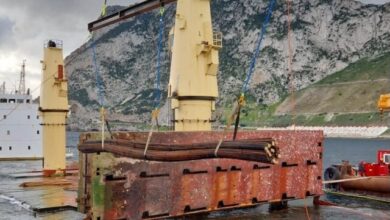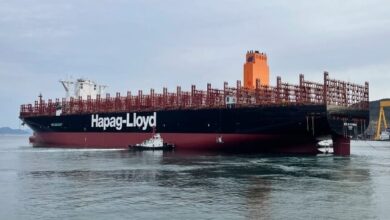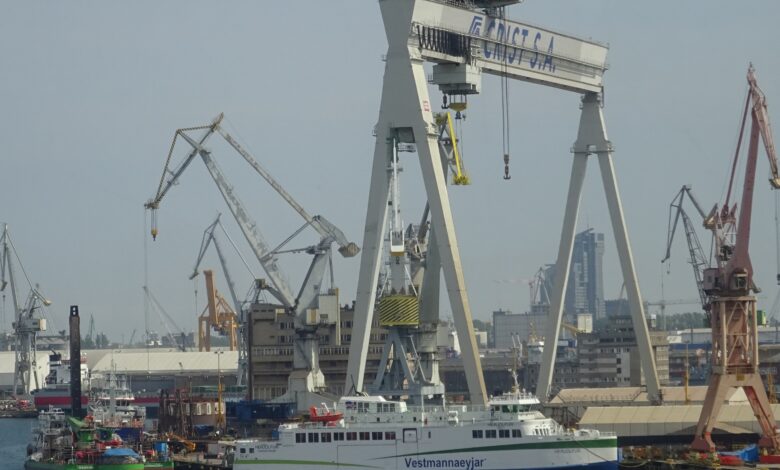
During January and February 2021, GALATEA partners have organized several innovation clubs and B2B meetings to encourage SMEs in proposing innovative solutions to the identified challenges in a cross-fertilization framework

By : Marek Grzybowski
Innovation Clubs. Around 60 SMEs and 10 experts from 5 European countries have participated in this ideation process in which an innovative “design thinking” methodology has been applied. SMEs joined around different working tables to respond to digitalization, environment, security and other specific challenges on the 4 GALATEA’s Blue Economy domains: Smart Ship, Smart Ports, Smart Shipyards and Maritime Surveillance. SMEs had the opportunity to meet and exchange ideas. Following the methodology to facilitate creativity and supported by facilitators and experts, more than 35 ideas have been generated by the SMEs to address the identified challenges.
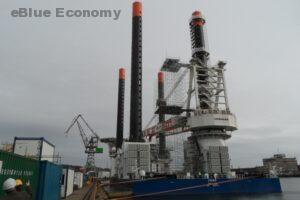

The workshops were organized by two strong French clusters: Pôle Mer Méditerranée and Aerospace Valley. Despite the fact that the meetings were held online, it was possible to identify a whole range of needs and problems faced by ports and shipyards and generate many new ideas for solving them. An additional challenge for the proposed projects is the need to operate in the conditions of the Covid-19 pandemic. Experts from Greece (Corallia Clusters Initiative / Research Center Athena), Spain (Asociación Clúster de Movilidad y Logística de Euskadi and Fundació Eurecat, Catalan Water Partnership) and Romania (Asociatia Cluj IT) were also involved in the preparation and conduct of the meetings. Poland was represented by the Baltic Sea and Space Cluster with a team of experts on smart ports and smart shipyards and smart ship.
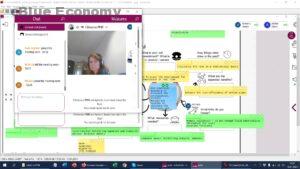
Smart Ship Innovation Club. The participants of the smart ship workshop covered practically all areas related to the design, construction and operation of intelligent and automated ships. The challenge in designing and operating small-manned or unmanned vessels is the need to consider technical and legal constraints. Disruptions and cyber attacks are a major threat to the operation of information and satellite systems and the operation of smart ships.
Workshop participants proposed a whole range of solutions related to IT support for smart ships. About 30 representatives of SMEs participated in the workshop at 5 expert tables.
The table at which issues related to the safe operation and navigation of intelligent ships were solved was managed by Master Mariner Cpt. Bartosz Bobko, expert of the Baltic Sea and Space Cluster and expert prof. Marek Grzybowski. The Innovation Club Smart Ship was efficiently organized and led by Diego Carballo from Aerospace Valley
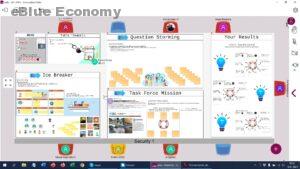
The Service Development team was extremely creative. The participants approached the problem solving interdisciplinary. They were looking for solutions related to both port management and customer service optimization.
Proposals were made for ways to improve security, environmental protection, digitization and personnel management. The panel was efficiently managed by Nerea Rojas, innovation manager from the Cluster of Mobility and Logistics (San Sebastia’nDonostia) operating in the Basque Country.
She was supported by experts from Poland, Krzysztof Anzelewicz and prof. Marek Grzybowski. Innovation Club Smart Port was effectively coordinated by Clemence Le Corff from the French cluster Pôle Mer Méditerranée,
In the smart shipyard workshops, much attention was paid to the ship production processes computerization and environmental protection. The maritime surveillance workshop focused mainly on the environmental protection and the use of ICT tools and satellite networks for this purpose.

Smart Port Innovation Club was very popular. The workshop gathered about 40 participants. SME representatives and experts identified the needs for innovation in such areas as: energy (renewable energy supply to terminals, port facilities and ships), logistics (organization and optimization of logistics processes in the port, transport and container management), environmental protection (implementation of green technologies in ports, monitoring of water and airpollution, energy quality, etc.).
Digitization (development of ICT and automation systems) in ports using fifth generation (5G) technology and blockchain, internet of things (IoT) and satellite systems were considered. Many interesting ideas and projects have been proposed in these areas
B2B meetings
These creativity sessions will followed by B2B meeting where SMEs will have the opportunity to further develop the ideas arising during the innovation clubs, propose other ones and search for partnerships to jointly apply to the GALATEA’s call. During the B2B day 74 people participated in a total of 126 B2B meetings searching for potential partnerships and to develop ideas to apply to the GALATEA Innovation Support Mechanism call opened until the 31st of March at 17:00 CET.
GALATEA
(Grow and AcceLerate your smArt projecTs in nEw value chAins of the European Blue Economy), a project funded by the European Union under its INNOSUP-1 programme, was launched in June 2020 giving continuity to the successful project NEPTUNEwhich ended in December 2018. GALATEA brings together the cooperation and experiences of 7 ICT, aerospace and maritime cluster and 1 research and technology organisation from 5 European countries: France, Greece, Romania, Poland and Spain. The project will run for 30 months until November 2022 under de coordination of Pôle Mer Méditerranée
Following the three-steps methodology approached by the project, after the emergence of challenges and ideas, GALATEA opens its first call for the provision of support services to SMEs the 27th of January, 2021. Util the 31st of March 2021, SMEs can apply for direct financial vouchers for the development of their projects or for getting support services from consortia experts.
SMEs can get direct financial support up to 20.000 € if they apply individually for development and technology transfer activities or up to 60.000 € per SME if they apply in a consortium of at least two SMEs to develop your prototype or demonstration projects. More information: https://www.bssc.pl/galatea/
photos: Marek Grzybowski


